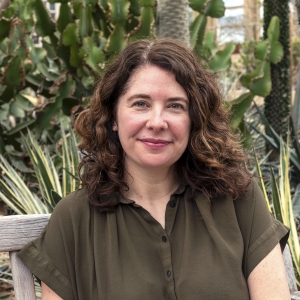Katie Rodrigues

Art form(s):Photography, Drawing, Collage, Mixed Media
CAPE Teaching Artist since 2021
Education:
BFA 2001 Photography University of Illinois at Urbana-Champaign
MSAE 2004 Massachusetts College of Art
Bio:
Kathryn Rodrigues is a Chicago based artist, educator and mother to two children. She was born in Georgia and within weeks was on the move to her family’s next destination. Her family moved to 10 different locations within the next 13 years, including Brazil, Mozambique, Portugal and Germany, before finally settling in Illinois. Being raised in a military family as a third-culture kid left her with a deep interest in identity, memory, domestic life, and the natural world. Her work investigates the interconnectedness of these topics through photography, drawing and mixed media collage. Her current work explores ideas of transcendence within a domestic setting and the psychology of motherhood. Kathryn received a BFA in Photography from the University of Illinois and a MSAE from the Massachusetts College of Art. Kathryn has completed residencies at Ragdale, Marwen and Stay Home Gallery. She has taught courses for children and adults at the Massachusetts College of Art, National Alliance for the Mentally Ill, Museum of Contemporary Art Chicago, Marwen, Changing Worlds and CAPE. Exhibition highlights include the Chicago Cultural Center, Woman Made Gallery, Midwest Center for Photography, Spilt Milk Gallery, Open House Contemporary, Fulton Street Collective, the Terrain Biennial and ARC Gallery.
Artist Statement:
Throughout my life I have repeated the process of disassembling, moving, reassembling and acclimating my home, community and sense of self across different countries, contexts and cultures. This pattern has led me to feel most at home when I am transitioning between layered states and identities. I feel a deep connection to saudade, a Portuguese word considered untranslatable, that denotes a nostalgic remembrance of certain people, places or things, absent or forever lost, accompanied by the yearning to see or possess them once more. I am fascinated by the ambiguity of simultaneous belonging and longing, separation and closeness, the known and unknown. The focus, time and resources I pour into my work all serve as tools for remembering, honoring and understanding my past and present. I find inspiration in the contrast between my transient, international childhood, current life in the suburbs and, most recently, in my experience as a mother. My work studies the interconnectedness of identity, memory, home, domestic life, and the natural world through analog photography, printmaking and collage. In my practice I explore the intersection of interior and exterior spaces, often using my body as a cartographic tool for discerning and delineating the edges and boundaries of my own experience and also a way to transcend and be in relationship with something greater than myself. My recent work explores ideas of transcendence within a domestic setting, the psychology of motherhood, familial lineage and mortality. As a middle-aged primary caregiver to two children, I am continuously challenged to find time and space to center my creative life while also nurturing and being anchored to my family and home. I return again and again to the consideration of linked generations, and the conscious and unconscious transmissions between them. What of who we are will pass on to our children? Which ephemeral moments and memories will be shared and preserved? How do I maintain my mental and emotional health while trying to parent during a time of such unrest? How do I embody the care and protectiveness I feel for my children while also preparing them for life beyond the walls of our home? By investigating these ideas, my practice finds synthesis across my feelings of containment, exhaustion and anxiety, along with my desire for expansive space, connection to my ancestors, the natural world, safety and autonomy.



